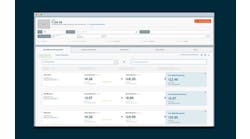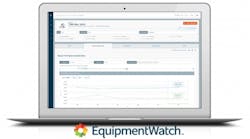The RER 100 was, essentially, flat year-over-year from 2007 to 2008, with only a slight decline of about one-third of a percent. The decline is 2 percent for companies on the list two straight years. Sounds better than you would expect. But the reality is different.
A recession clearly began in 2008, but for many, business was pretty good until the fourth quarter when a downward slope turned into a jump off a cliff. The experience was pretty universal among RER 100 companies and most industries, in not only the United States, but, amazingly, the whole world.
Then 2009 began with a gigantic silent thud, what many rental companies said was the slowest period of business they could ever remember. Some who had been around in the early 1980s, compared it to that period, or worse. There were a few exceptions, but the slowdown was, for the most part, dramatic and palpably scary.
Many questions arise from this, but two questions stand out to me. Were you prepared for this, and what happens next? Some companies were prepared. They anticipated it, started downsizing well before they really had to, took cost-cutting measures, looked for unexplored niches, and ways to enhance efficiencies. More common was an anticipation of a slowdown but not the severity of it, and from what I've seen and heard, rental companies responded quickly. By late last year it was pretty clear the wheels had come off the bus and people who didn't realize it were either doing business in isolated pockets where some projects were still going strong, were involved in a solid niche or were lucky enough to have customers that were busy.
So the next question is where do we go from here? Looking at the economy overall, as I write this in early May, there is a sense from economic reports in the media that there is a beginning of optimism, that while we may not have hit bottom, we may be approaching what I often hear referred to as “the trough.” I won't get into the images that word conjures up, but nonetheless these are the most encouraging perceptions from economists I've heard in some time.
Still, rental company executives I talked to while working on the RER 100, whose customers tell them they have no work on the horizon, are not likely to be doing cartwheels across their wash racks just yet. I say this not to “add to the doom and gloom” as a number of you have counseled me to avoid doing — and as a member of the media, I respect and understand your point of view.
But rather I say this from the perspective that we have all been chastened rather severely by this recession, and most economists and most contractors don't expect it to turn around in 2009. So, it may make sense for business owners to think like a homeowner who suddenly finds his house isn't worth as much as he thought and doesn't have much access to credit and has to alter his lifestyle because there are no magic wands that will make it easier. It might be wise to think that this is just the way it is likely to be for a while. So how do we make do with what we have? How do we do business within our means?
I remember well the recession in the early years of this decade and how so many rental companies, once they adjusted to that particular slowdown and adjusted their businesses accordingly, began finding their way out of the hole and I think that's key here. It's like living where I live, in California. Let's face it, folks, we have a drought here and as soon as we understand that and live accordingly the better off we'll be.
That said, I'm impressed that so many on the RER 100 are opening new branches and going forward aggressively rather than completely pulling in their horns. In some cases, it makes sense strategically. They have a lot of under-utilized fleet so rather than dispose of it for a lesser price in a tough market, why not put it to use somewhere else? It won't work for everybody and some simply can't afford to do it, but it will work for some.
Find more efficient ways of doing things, look for software that can help. Re-examine your rates. Figure out a plan to go forward in 2009 if it stays the way it is or even gets worse. Then if it gets better, you're that much ahead of the game.





